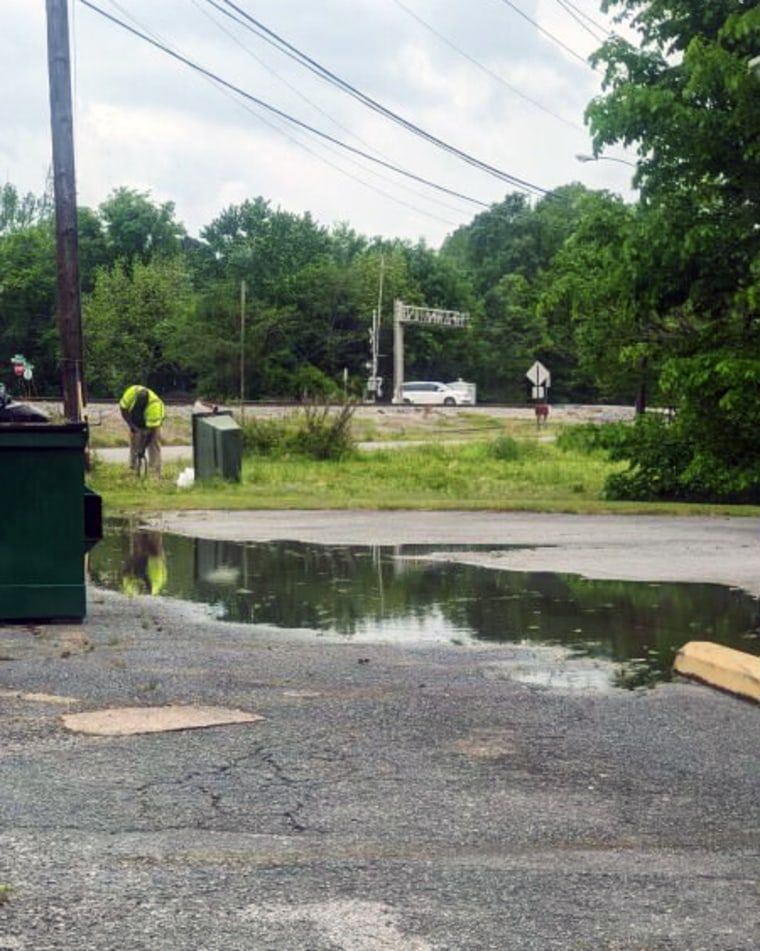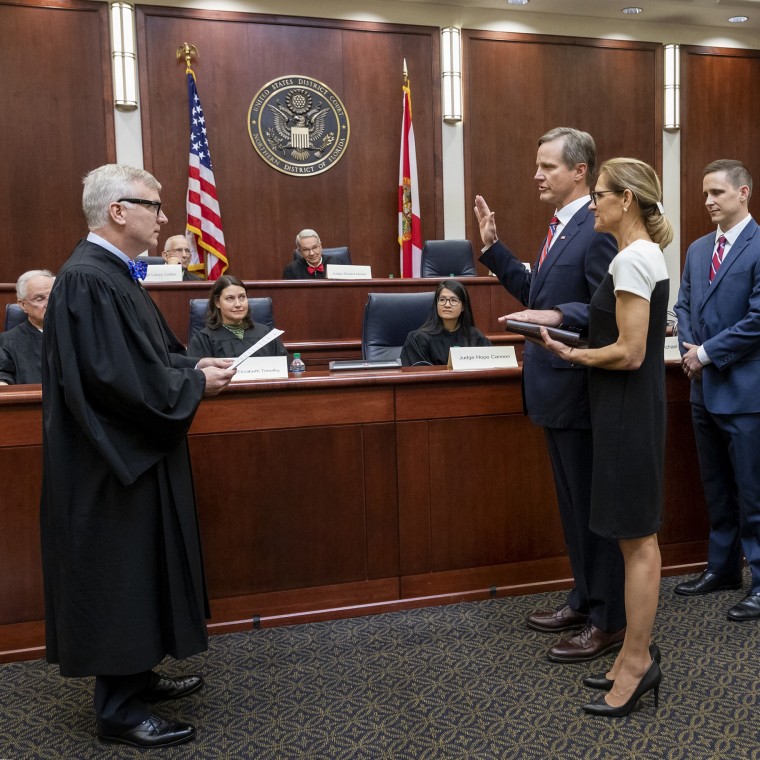Arkansas trans community center vandalized for 5th time in past year, advocates say
An Arkansas transgender advocacy group’s community center was vandalized this week for at least the fifth time in the past year, the group’s executive director said.
InTRANSitive, the only trans community center in the state, has become increasingly visible in recent years due to its activism against a wave of state legislation targeting trans people, Rumba Yambú, the founder and executive director, said.
InTRANSitive’s Little Rock-based community center has seen repeated acts of vandalism since it opened in December 2021, said Yambú, who uses they/them pronouns. Starting last year, someone has damaged the pipes outside of the building at least four times, they said. Cameras have also disappeared and plants have been damaged. This past weekend, the same pipes that had been repeatedly damaged were completely removed from the ground and taken from the premises.
The first four times the pipes were damaged, the group spent an estimated $900-$1,200 to repair them each time, Yambú said. This most recent act of vandalism cost about $1,400 to fix the pipes and another $900 to install a protective cage over the them, they added. The group is fundraising to cover the cost since Yambú had to pay for it using a credit card. Yambú said they also expect the group’s water bill to be much higher due to flooding caused by the damage.
“We just can’t afford to be closed for too long,” Yambú said. “It just puts a pause on everything that we do and all the people that we serve.”

Yambú said the FBI called them Wednesday and asked to have an in-person meeting to talk about the incident, though Yambú said they did not report it to the bureau.
A spokesperson for the FBI said the bureau “is aware of the situation,” but in keeping with long-standing policy “we can neither confirm nor deny the existence of an investigation. As always, we encourage individuals to immediately report suspicious or unlawful activity to law enforcement.”
Yambú said they have not reported any of the incidents of vandalism to local police because the group and its members have experienced police harassment. Yambú said officers with the Little Rock Police Department repeatedly patrol in front of the center and have tried to enter while asking how many children are inside — a question that Yambú said echoes language coming from conservative advocates in the state and nationwide who have called trans advocates “pedophiles” and “groomers.”
Mark Edwards, a spokesperson for the Little Rock Police Department, said Friday the department only has three incident reports from the community center’s address, and only one of those is during the time that InTRANSitive has occupied the space. In that May 2023 incident, he said, someone called 911 and when police got there, officers didn’t speak with anyone.
Regarding officers patrolling in front of the center and asking about children on the premises, Edwards said, “There’s nothing on our side that shows proof we’ve been there” outside of the three incidents.
“If we’ve driven in the area, it’s because we patrol the area,” he added. “There are thousands of businesses we patrol, and there are some businesses we do the same patrolling, they say they’ve never seen us. Unless there’s an incident report number that I can actually go to and look at, it’s kind of hard to comment.”

Yambú said people on social media have suggested that the act was unrelated to the group’s work, but Yambú disagrees.
“It all started with the visibility that we’re getting, how much anti-trans hate is being pushed by our legislators,” they said, noting that they purposely don’t have a sign that says the group’s name on the building in an effort to minimize harassment.
In 2021, the same year InTRANSitive opened its community center, Arkansas became the first state in the country to pass a ban on transition-related care, including puberty blockers, hormone therapy and surgery, for minors. A federal judge declared the law unconstitutional last year. However, Arkansas is also one of 25 states that have passed a measure barring transgender students from competing on school sports teams that align with their gender identities, and that law is in effect.
Yambú said that every time the center is vandalized and has to close, it makes it harder for the group to do its daily work, which includes providing free food every Tuesday, a space for people who don’t have affirming homes or families to hang out for a few hours, free HIV testing and free assistance to people who need help navigating the immigration process.
Yambú said the group plans to raise funds for better lights outside of the building and for security cameras, because the current cameras are solar powered and only activate when there’s movement and enough light. However, regardless of the additional security measures, they said they expect the vandalism to continue.
“Our folks know that we’re here,” Yambú said. “The more work that we’ve been doing, the more visible that we’ve been in sessions, the more our name is getting out there, the more that this is happening.”




